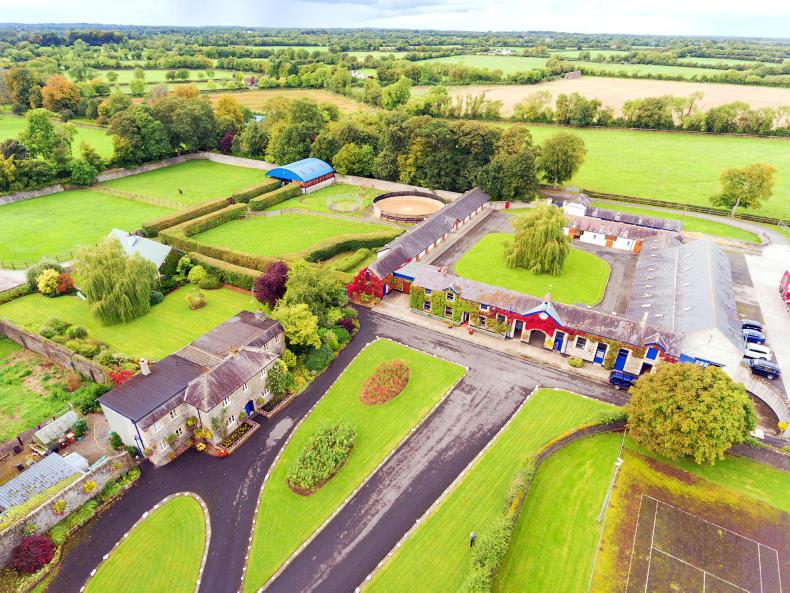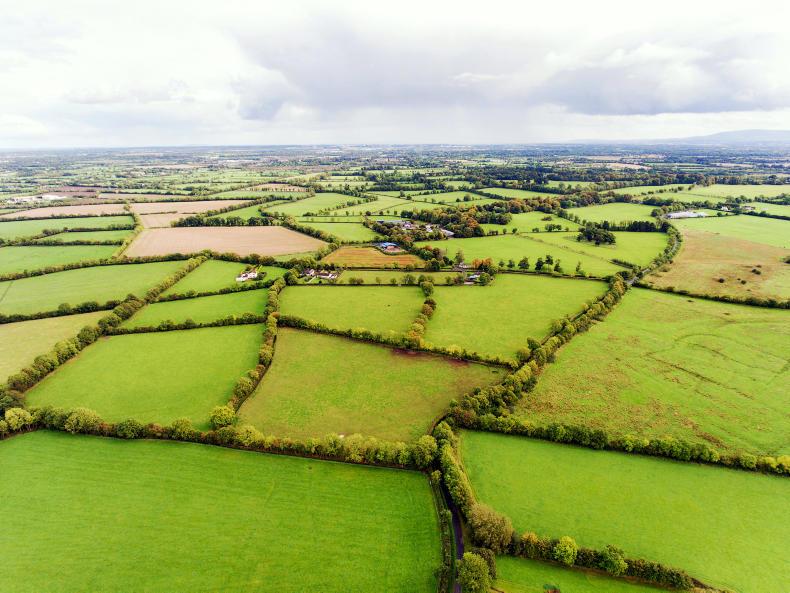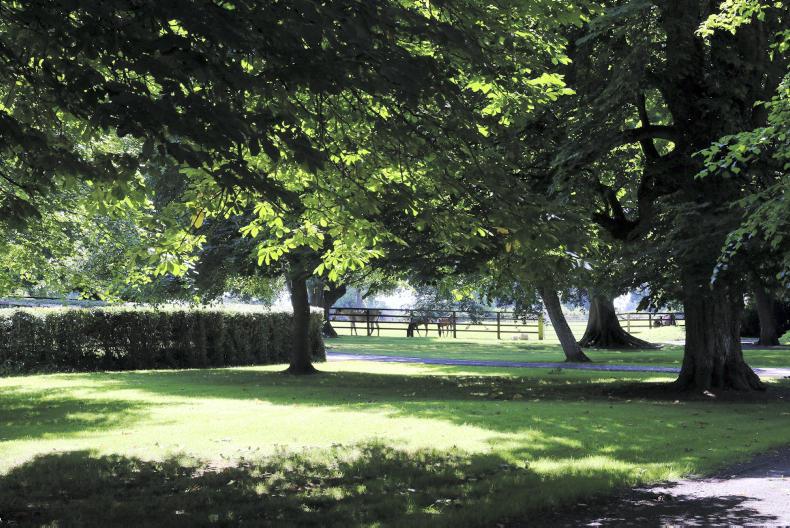Arkle was one of the most famous national hunt horses bred in this country. Islington had a hugely successful turf record and is a top broodmare. Both horses were bred at the famous Ballymacoll Stud, which is located just two miles outside Dunboyne, Co Meath. Having recently announced its decision to disperse its bloodstock interest, the world-renowned Ballymacoll Stud has just been launched to the open market through agent Coonan Auctioneers, Maynooth and Celbridge.
Standing on circa 295 acres, the property is situated in a prominent equine region, set amidst a haven of famous studs to include Hamwood, Killarkin, Owenstown and Moyglare. Renowned for breeding top-class bloodstock for over 50 years, Ballymacoll has bred 30 individual Group 1 winners to include Sun Princess, Troy, Conduit and Spectrum.
While speaking to manager Peter Reynolds during my recent visit to Ballymacoll, it’s clear the stud has consistently concentrated on using a proven line of breeding families, some of which go back to the days of former owner, Dorothy Paget.
Given its worldwide reputation for breeding top-class thoroughbreds, Ballymacoll is guaranteed to generate widespread national and international interest in the coming weeks and months. Not for the faint hearted though, the property is expected to fetch somewhere in the region of €12m to €13m, clearly targeting the upper end of the Irish property market.
In the Hamilton family until 1911, Ballymacoll changed hands a number of times over the course of three decades before being secured by Dorothy Paget in 1946. Despite owning the property, she actually never visited the place but did keep abreast with things through regular reports that were accompanied by photographs. After her death in 1960, the property (along with 130 horses) was bought by Michael Sobell and Arnold Weinstock for a figure in the region of £250,000. In 2010, the Sobell-Weinstock partnership celebrated 50 years in business.
Today, Ballymacoll comes to the market with a large manager’s residence, a fabulous courtyard, a total of 60 stables, three staff cottages, a foaling unit, a gate lodge and 295 acres of land, grounds and roadways.
Most people associate stud farms with precision and attention to detail. Ballymacoll definitely doesn’t disappoint – it excels. As I entered the automatic timber gates at Ballymacoll last week, I just knew I was going to a trophy property. Once through the gates, you drive up a tarred, mile-long avenue that is beautifully lined on both sides by a mature beech hedge, delightfully exuding the rustic colours of the autumn.
Just before you arrive at the house and yard is a charming parkland area that is planted with towering beech, oak, lime and horse chestnut trees. This road doesn’t just stop at the manager’s house – it continues right through to the back gate.
Identified by its poised clock tower, the main stable yard lies adjacent to the manager’s house. Upgraded in recent years, the stables feature solid oak doors and a modern ventilation system. A short distance away is the 14-box foaling unit which is fully equipped with cameras and heaters. The remaining stables are found at other locations throughout the farm and, it goes without saying, are also in excellent order. In addition to all the equine facilities, there is also a cattle yard that incorporates a range of loose-bedded sheds and silage slabs.
Broken by a country road, circa 35 acres of the farm is situated directly across from the remaining circa 260 acres.
The land is laid out in a range of good-sized fields, all stud railed and beautifully landscaped with trees and hedges – there isn’t a leaf out of place. The hedges are high enough to give lots of privacy and seclusion. Renowned for producing top-class horses, the land clearly has a lot more to offer than its cosmetic appearance.
Apart from frontage on to the main Dunboyne/Maynoooth road, Ballymacoll also fronts two country roads, giving tremendous access and frontage. It should make for a very interesting sale in the coming months. CL
Arkle was one of the most famous national hunt horses bred in this country. Islington had a hugely successful turf record and is a top broodmare. Both horses were bred at the famous Ballymacoll Stud, which is located just two miles outside Dunboyne, Co Meath. Having recently announced its decision to disperse its bloodstock interest, the world-renowned Ballymacoll Stud has just been launched to the open market through agent Coonan Auctioneers, Maynooth and Celbridge.
Standing on circa 295 acres, the property is situated in a prominent equine region, set amidst a haven of famous studs to include Hamwood, Killarkin, Owenstown and Moyglare. Renowned for breeding top-class bloodstock for over 50 years, Ballymacoll has bred 30 individual Group 1 winners to include Sun Princess, Troy, Conduit and Spectrum.
While speaking to manager Peter Reynolds during my recent visit to Ballymacoll, it’s clear the stud has consistently concentrated on using a proven line of breeding families, some of which go back to the days of former owner, Dorothy Paget.
Given its worldwide reputation for breeding top-class thoroughbreds, Ballymacoll is guaranteed to generate widespread national and international interest in the coming weeks and months. Not for the faint hearted though, the property is expected to fetch somewhere in the region of €12m to €13m, clearly targeting the upper end of the Irish property market.
In the Hamilton family until 1911, Ballymacoll changed hands a number of times over the course of three decades before being secured by Dorothy Paget in 1946. Despite owning the property, she actually never visited the place but did keep abreast with things through regular reports that were accompanied by photographs. After her death in 1960, the property (along with 130 horses) was bought by Michael Sobell and Arnold Weinstock for a figure in the region of £250,000. In 2010, the Sobell-Weinstock partnership celebrated 50 years in business.
Today, Ballymacoll comes to the market with a large manager’s residence, a fabulous courtyard, a total of 60 stables, three staff cottages, a foaling unit, a gate lodge and 295 acres of land, grounds and roadways.
Most people associate stud farms with precision and attention to detail. Ballymacoll definitely doesn’t disappoint – it excels. As I entered the automatic timber gates at Ballymacoll last week, I just knew I was going to a trophy property. Once through the gates, you drive up a tarred, mile-long avenue that is beautifully lined on both sides by a mature beech hedge, delightfully exuding the rustic colours of the autumn.
Just before you arrive at the house and yard is a charming parkland area that is planted with towering beech, oak, lime and horse chestnut trees. This road doesn’t just stop at the manager’s house – it continues right through to the back gate.
Identified by its poised clock tower, the main stable yard lies adjacent to the manager’s house. Upgraded in recent years, the stables feature solid oak doors and a modern ventilation system. A short distance away is the 14-box foaling unit which is fully equipped with cameras and heaters. The remaining stables are found at other locations throughout the farm and, it goes without saying, are also in excellent order. In addition to all the equine facilities, there is also a cattle yard that incorporates a range of loose-bedded sheds and silage slabs.
Broken by a country road, circa 35 acres of the farm is situated directly across from the remaining circa 260 acres.
The land is laid out in a range of good-sized fields, all stud railed and beautifully landscaped with trees and hedges – there isn’t a leaf out of place. The hedges are high enough to give lots of privacy and seclusion. Renowned for producing top-class horses, the land clearly has a lot more to offer than its cosmetic appearance.
Apart from frontage on to the main Dunboyne/Maynoooth road, Ballymacoll also fronts two country roads, giving tremendous access and frontage. It should make for a very interesting sale in the coming months. CL








SHARING OPTIONS